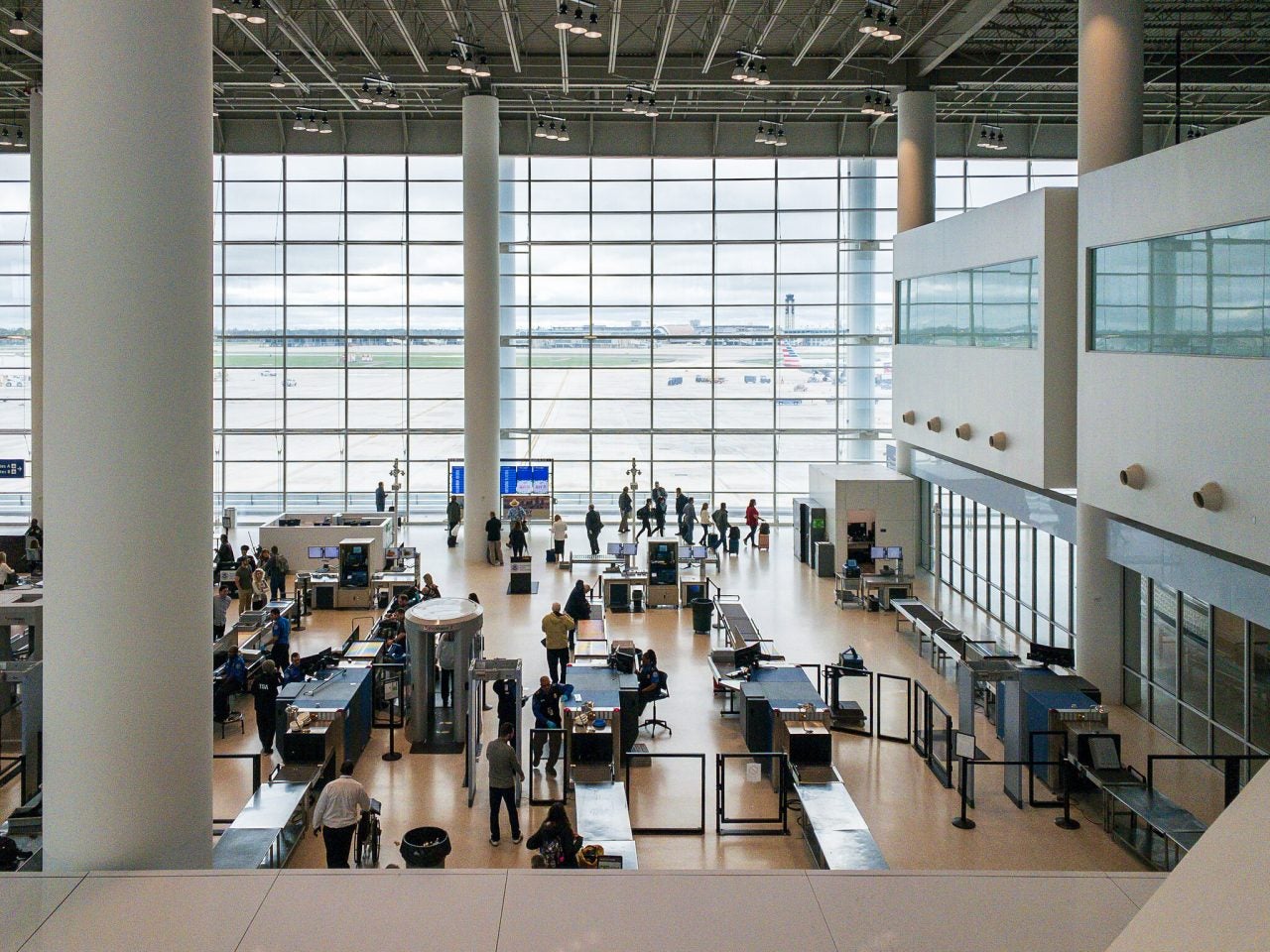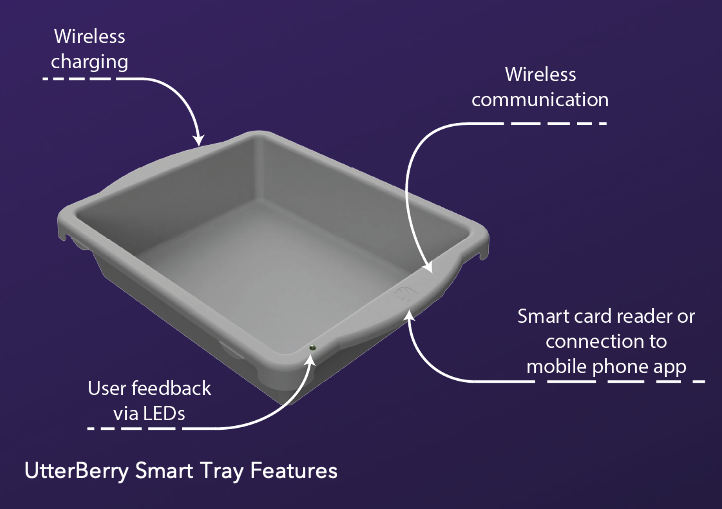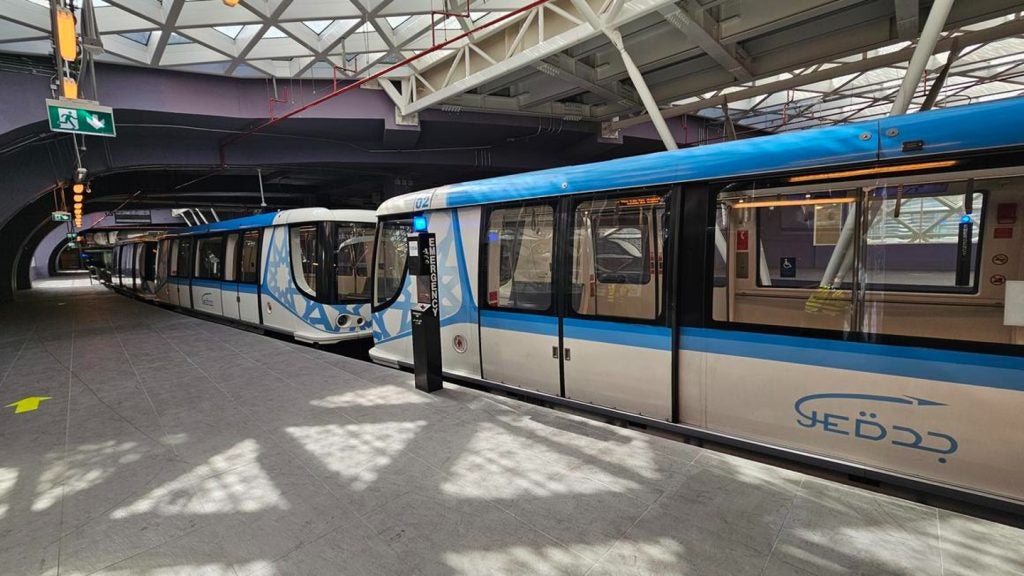
Over the past year, UK start-up UtterBerry has been developing smart security trays and the company now is in talks with airports across the country to roll out the technology from next year onwards.
The technology was widely praised both at the government and the industry level.
“It’s my ambition for the UK to be the best place in the world for aviation and technology, and improving passenger experiences when travelling will help us achieve this,” said aviation minister Robert Courts in a statement. “UtterBerry’s work to enhance security trays, will not only increase security at the border but make airport checks quicker and easier for passengers.”
Credit: UtterBerry.
Joint venture
UtterBerry’s smart tray technology was created with the help of the UK Department for Transport (DfT) and the Home Office which jointly set up the Future Aviation Security Solutions (FASS) in 2016.
How well do you really know your competitors?
Access the most comprehensive Company Profiles on the market, powered by GlobalData. Save hours of research. Gain competitive edge.

Thank you!
Your download email will arrive shortly
Not ready to buy yet? Download a free sample
We are confident about the unique quality of our Company Profiles. However, we want you to make the most beneficial decision for your business, so we offer a free sample that you can download by submitting the below form
By GlobalDataWith £25.5m to invest over five years on new aviation security technology, the FASS programme selected the project through the Defence and Security Accelerator’s (DASA) open call for innovation.
“As a DASA Innovation Partner, I was delighted to identify this gem of an idea and guide [the company] through the DASA process – where expert technical assessors and the Department for Transport agreed and funded its development,” explains DASA innovation partner Ralph Wilkins.
“That they are now demonstrating its value to passenger security with two major airports shows how setting challenges and providing funding for ambitious technical developments can advance technology and help keep people safe.”
As part of the programme, UtterBerry will work with DASA as well as the Defence Science and Technology Laboratory (Dstl), the Ministry of Defence’s national executive scientific agency.
“We have been thrilled to work on this innovative project, providing a revolutionary security enhancement solution within airports without hindering passenger experiences,” adds UtterBerry founder and CEO Heba Bevan.
“We worked equally hard to ensure we maintained time scales to deliver this project despite the issues caused by the coronavirus pandemic [and] we hope this new technology will be adopted within as many airports as possible.
“Working with HM Government has ensured we have remained within the necessary guidelines to offer the safest, most streamlined solution,” she continues. “Their feedback and guidance has been of great value to UtterBerry, and for that, we are very thankful.”
Connecting passengers to their trays without leaking data
To enhance security and avoid loss of luggage, UtterBerry’s trays use a mix of blockchain technology, machine learning and AI to provide an overview of the trays in use and the related passenger information.
“The UtterBerry team worked extremely hard to seamlessly integrate novel software and hardware, including our patented blockchain technology, machine learning, artificial intelligence and miniaturising hardware for the trays,” says Bevan.
When a passenger approaches an airport’s security control, they are issued with a smart card that stores all the flight and basic information. At the other end, a smart reader allocated on the tray enables passengers to link their belongings to the tray, flashing a LED light of different colours depending on the status of the baggage, if it has been scanned or not.
In addition to linking passengers to their belongings, the smart trays will provide an analysis of contents as well as the passenger throughput and the factors that contribute to delays. By using an X-ray interface, information will also be displayed on the baggage inspection monitors.
“This technology is a grand step in associating a person, and their belongings, with the tray they use in an airport hand-baggage security setting,” explains Dstl principal scientist Dr Martyn Fletcher.
“Having such a capability will mean security personnel can instantly determine who put a suspicious object into a tray and so minimising disruption for the public as they prepare to board their planes.”
The system will charge wirelessly, enabling long hours of battery operation, and will run on multiple infrastructures due to being Cloud-based.






